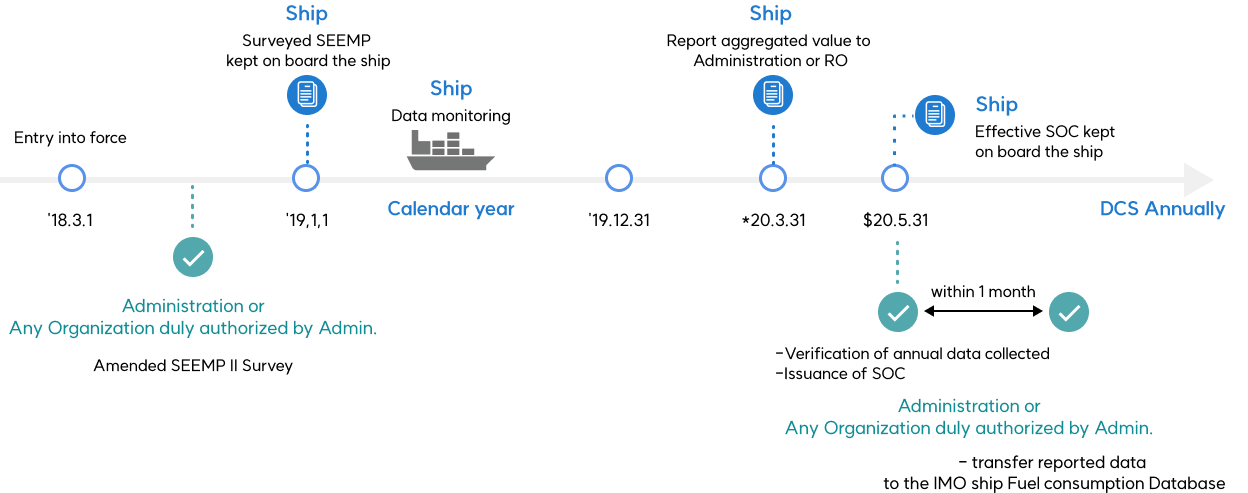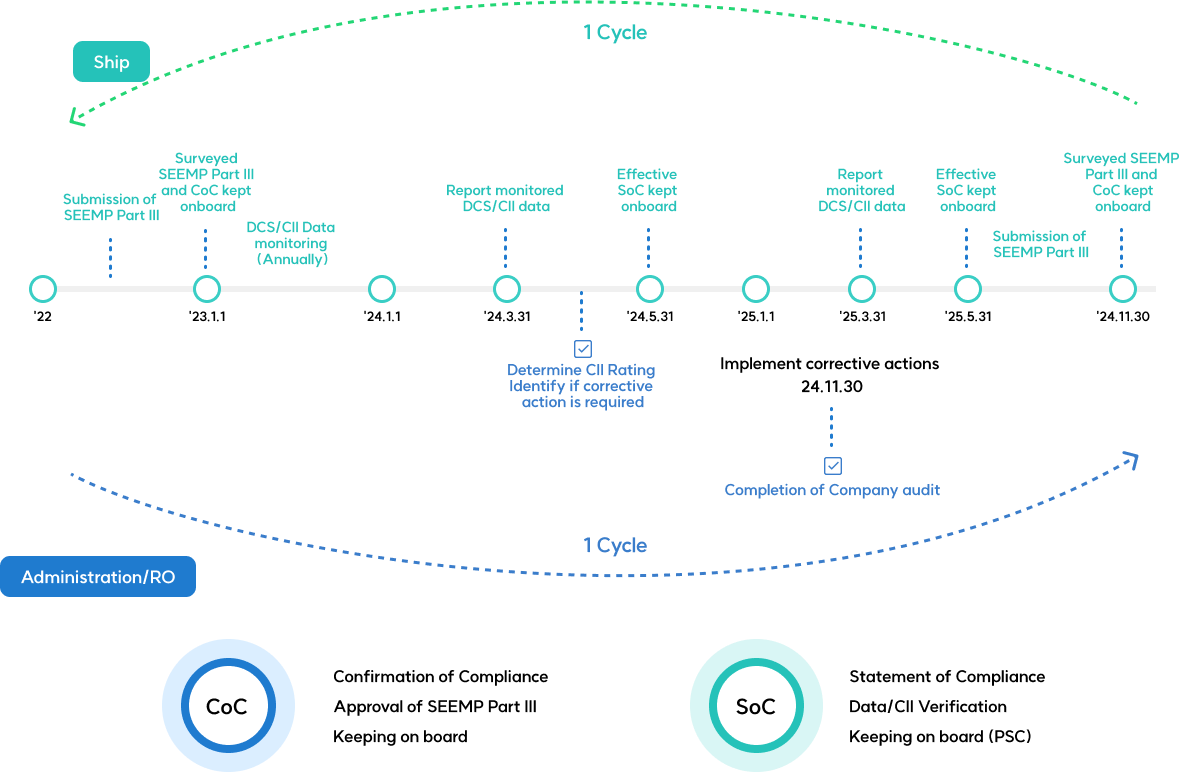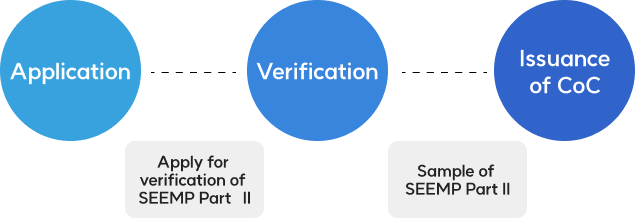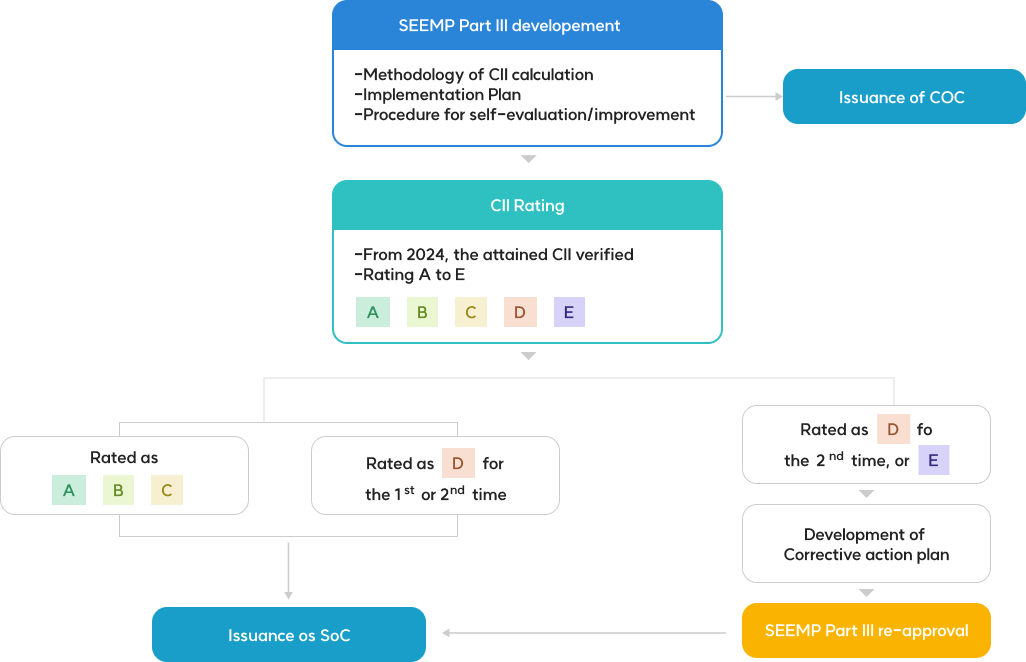IMO DCS is a regulation implemented to reduce greenhouse gas emissions from ships, requiring international vessels with a total tonnage of over 5,000 tons to collect, report, and verify information such as fuel usage. The information collected under IMO DCS contributes to implementing additional measures to reduce the vessel's greenhouse gas emissions. This regulation is part of various mitigation strategies aimed at reducing greenhouse gas emissions from international shipping by at least 50% by 2050 compared to 2008 levels.
IMO DCS, based on the MARPOL Annex VI Regulations 26 and 27, came into effect on March 1, 2018. By December 31, 2018, the development of SEEMP Part II, including data collection methodologies, was required. Starting from 2019, according to SEEMP Part II, information such as a ship's distance travelled, hours under way and fuel oil consumption must be collected annually. From 2023 onwards, the information collected from IMO DCS will be used for calculating the ship's Carbon Intensity Indicator (CII).

According to the IMO GHG Reduction Initial Strategy, CII is a regulation implemented as one of the short-term measures to reduce greenhouse gas emissions from ships. It requires the calculation of Carbon Intensity Indicator (CII), which represents the amount of carbon dioxide emitted per ton of cargo carried over one nautical mile, based on the operational information of the vessel.
Based on MARPOL Annec VI Reg. 26 and 28, the CII regulation applies to ships of one or more of the following ship types: Bulk carriers, Gas carriers, Tanker ships, Container ships, General cargo ships, Refrigerated cargo ships, Combination carriers, LNG carriers, Ro-Ro cargo ships (vehicle carriers), Ro-Ro cargo ships, Ro-Ro passenger ships, and ruise passenger ships, with a gross tonnage of 5,000 tons or more engaged in international voyages. The subject ships are required to develop a Ship Energy Efficiency Management Plan (SEEMP) Part III, which includes "CII calculation methodology," "data collection plan and data quality," "allowable CII values for a 3-year period," "implementation plan for a 3-year period," "self-assessment and improvement process," "SEEMP updates and reviews," and "corrective action plan (if applicable)". From 2023 onwards, they need to report the Attained CII based on the IMO DCS data and the assigned CII rating from A to E.
If a ship rated as D for three consecutive years or rated as E, SEEMP Part III with a corrective plans to achieve the CII target should be developed and reviewed from the Administration or RO. It is important for ships to have a high CII rating to gain a competitive advantage in the market, while those with a low CII rating are more likely to be phased out. To comply with the CII regulation, ships should consider both technical approaches and operational measures, taking into account energy and cost aspects as well as the feasibility of control measures.

Verification of SEEMP II/III : After completing the review of the submitted SEEMP II/III, KR will issue a Certificate of Confirmation (CoC) for the vessel.

Verification of IMO DCS Data/CII : If the collected IMO DCS data and CII meet the requirements* accoridng to IMO Resolution MEPC.348(78), KR will issue the vessels a Confirmation of Conformity (SoC). * If there are the relevant guidelines for each flag administration, perform verification accordingly.
[IMO DCS only]

[IMO DCS and CII]

KR customers can use the GHG verification service more easily and quickly through KR-GEARs free of charge.